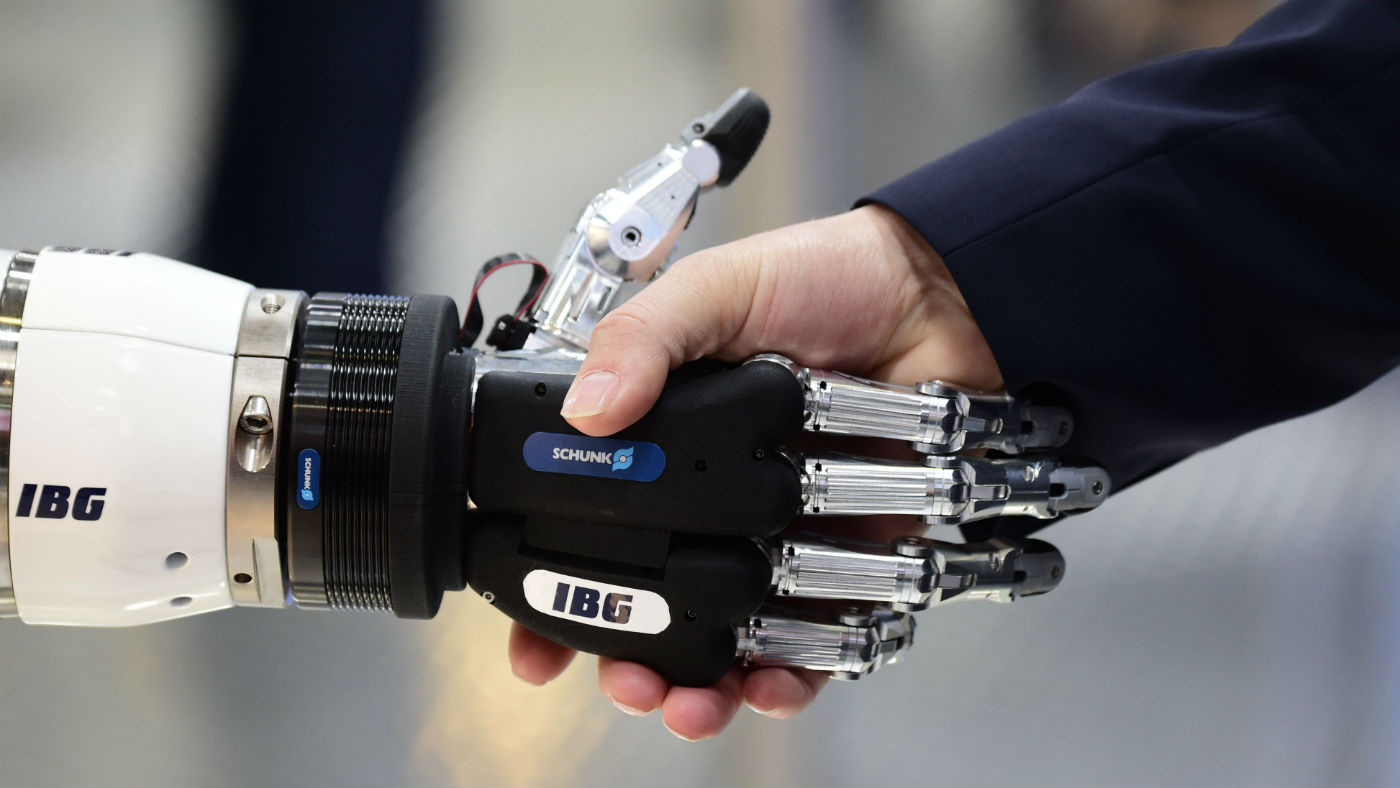Automation could replace 1.5 million UK jobs
ONS estimates 70% of ‘high risk’ roles are currently held by women

A free daily email with the biggest news stories of the day – and the best features from TheWeek.com
You are now subscribed
Your newsletter sign-up was successful
One and a half million people in the UK are at high risk of losing their jobs to automation, the Office for National Statistics has claimed.
The ONS analysed 20 million jobs and found that 7.4% were under serious threat of being replaced by new technology in the form of computer programs, algorithms or robots.
Low-skilled, more routine jobs such as waiters and waitresses, shelf fillers and elementary sales occupations are most at risk, with 70% of these roles currently held by women. Part-timers and the young are the next most at-risk demographic.
The Week
Escape your echo chamber. Get the facts behind the news, plus analysis from multiple perspectives.

Sign up for The Week's Free Newsletters
From our morning news briefing to a weekly Good News Newsletter, get the best of The Week delivered directly to your inbox.
From our morning news briefing to a weekly Good News Newsletter, get the best of The Week delivered directly to your inbox.
Tamworth, Rutland and South Holland in Lincolnshire are the areas most exposed to automation, “partly reflecting a relatively high level of farm workers”, says The Guardian, while Camden in north London has the workers least at risk.
At the other end of “at-risk” occupation spectrum are medical practitioners and higher education professionals.
“The message from this analysis is clear,” says BBC business correspondent Jonty Bloom: “the better trained and educated you are the lower are the chances of you losing your job”.
However, there is some good news for those concerned about the impact of the onward march of machines in the workplace.
A free daily email with the biggest news stories of the day – and the best features from TheWeek.com
The ONS figures reveal there are actually fewer jobs at risk of automation now than was thought in 2011, from 8.1% to 7.4%, meaning “the rise of the robots has been overestimated”, says the Daily Telegraph.
The paper reports that experts “are not surprised by the latest data because the public’s expectation of technology and artificial intelligence is becoming increasingly ‘realistic’”.
Professor Alessandro Vinciarelli, an artificial intelligence expert at the School of Computing Science at the University of Glasgow, said the ONS data collected in 2011 was indicative of the context at the time and higher expectations of machine advancement in the physical world.
“We are a little bit more at the end of the hype cycle now than in previous years,” he said. “When something like technology becomes fashionable, there’s a rise in major expectations, we reach a peak and then it comes back down to a more realistic expectation.”
However, the ONS said the decline could also be because a significant number of jobs had already been automated over the past decade. The Guardian notes “supermarket checkout assistants have already borne the brunt of the phenomenon”, with 25.3% of jobs disappearing between 2011 and 2017.
The statistics body says that while the overall number of jobs has increased, the majority of these are in occupations that are at low or medium risk.
That suggests, it says, that the labour market may be changing to jobs that require more complex and less routine skills.